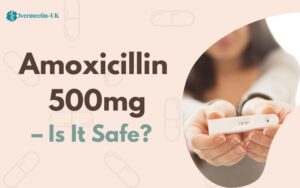Is Ivermectin safe for humans in 2022?
The last two years have seen tremendous ups and downs in the medicine world with immense attention garnered particularly by Ivermectin medicine. There have been cases of antibiotic resistance, stacking therapy in a bid to fight the antibiotic resistance and lots more. Reports of promising trials have ended in mixed results with upcoming trials being shelved for various reasons. A lot of medicines, especially Ivermectin, have remained in the limelight since 2020 for a variety of reasons. But before discussing its safety we need to know a bit about it.
A word about Ivermectin
Ivermectin was discovered in the 1960s by scientists William Campbell and Satoshi Omura from a soil sample in Japan. Initially developed for treatment of parasitic infections in domestic animals, by the 1980s it was modified and approved for human use. Said to work by paralyzing or killing the said parasites, Ivermectin is actually an FDA approved anti-parasitic with being ranked by WHO as an essential medication. Regarding its use in Covid patients, the discussion and overall verdict is a mixed one.
Let’s talk about the current Covid situation
The SARS-COVID 2 virus was first identified in Wuhan, China. Said to have originated from a bat species, it eventually started affecting humans and from China started its spread to the rest of the world. Using its unique method of multiplying inside the human body after entering it through the ACE 2 receptors, the Covid virus has by now claimed millions of lives. Initially, Ivermectin was the only treatment option and hailed a miracle by some patients for treating the viral symptoms.
With the advent of the vaccines, boosters and currently a few research based antiviral pills, the attention has temporarily shifted from Ivermectin. But nevertheless, it still remains a plausible option especially when vaccines fall short or are termed immunity increasing agents rather than treatment options.
Is Ivermectin applicable for Covid patients?
There are a lot of ways in which Ivermectin has the capacity to help in reducing the severity of symptoms of Covid positive patients and even decrease the mortality rate to an extent. It has been postulated by researchers that Ivermectin forms a protective shield around the SARS COVID virus that hinders it from attaching itself to the ACE2 reception and entering the body through them.
The virus after entering the body has a tendency of giving rise to a cytokinetic storm due to its multiplication tendencies. Because of its anthelmintic properties, Ivermectin prevents multiplication of the virus and subsequently further spread of the virus. By inhibiting the hosts importing alpha/beta 1 proteins, Ivermectin is said to provide sufficient time to the immune system for bringing out its antiviral response.
But is it safe?
As of now, trials have not been able to provide satisfactory or sufficient information regarding the safety and effectiveness of Ivermectin in Covid positive patients. The results of the clinical trials and retrospective cohort studies have been at the least confusing. Apart from small sample size, there have been discrepancies in the nature and other criteria of the said trials. The overall study outcomes of these trials as a result have not been defined.
That said about the trials, the WHO has a greater reason for not allowing Ivermectin use for Covid positive patients. Even though Ivermectin has shown a good response to the SARS-Covid virus in cell cultures, the dose required for its use in Covid patients is alarming. It has been suggested by researchers that the dose of Covid purpose Ivermectin is 100-fold higher than the approved human dose. Despite its efficacy in Covid patients, the intensity of the dose could lead to side-effects much severe in magnitude than the virus in itself.
Safe use of Ivermectin
The safety of Ivermectin has been proved for parasitic conditions. In a study conducted to assess the efficacy and safety of Ivermectin and Thiabendazole for treatment of Strongyloidiasis, 88 patients were included in a randomized double blind study. Ivermectin showed much better prognosis for Strongyloidiasis condition in a much less timespan with comparatively fewer side-effects than Thiabendazole.
Other than Strongyloidiasis, Ivermectin is also extremely useful in the treatment of Onchocerciasis condition. In a study conducted to observe the effect of Ivermectin for Onchocerciasis, Ivermectin has led to favorable results. The trials showed that use of Ivermectin resulted in significantly and longer lasting decrease in the microfilarial skin loads with minimum adverse effects during the treatment process. Even for Ascaris worm or roundworm, Ivermectin has shown a favorable prognosis.
Is it safe in Pregnant or breastfeeding women?
In animal studies, the use of Ivermectin in pregnant mice resulted in damage to the fetus and toxicity effects to the animal in question. This has raised concerns about administering it or it being safe for pregnant women in their early pregnancy periods. Some human studies have shown adverse effects on pregnant women even in normal doses administered at this time. But other studies have proved the safety of the medication in pregnant women in the later stages of pregnancy.
Related Post

Buy Ivermectin
Free Express Delivery (Royal Mail)
Dispatched Within 24 Hours
Delivery Within 3-5 Business Days









